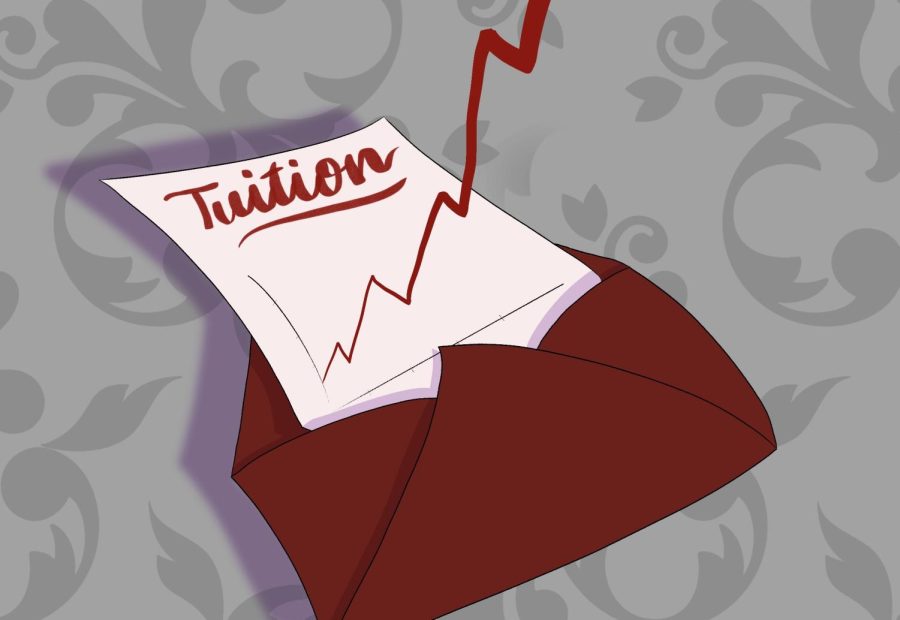OPINION: Tuition increases not solution to campus needs
Vote to raise tuition by 2.5% harms students, causes financial instability
Cougs already struggle with being able to attend classes due to the high cost of tuition. A potential tuition increase will only make the problem bigger.
January 19, 2022
WSU’s Board of Regents will vote this week on whether or not to increase tuition for the 2022-23 academic year. If approved, it will be the sixth consecutive year that students will face a tuition increase.
The proposal would raise tuition from $10,457 to $10,718 for Washington residents; the increase for nonresidents is even more significant, rising from $25,773 to $26,417.
While the tuition increase will go toward offsetting budget cuts and increasing operation costs, raising tuition will harm students more than help them.
Tuition increases have helped support many things over the years. For example, the 2021-22 increase was meant to help address mental health and basic needs for students – in theory, it is a small price to pay for the benefit of the community.
However, forcing students to pay more for their education in exchange for improvements in their quality of life overshadows an urgent problem for many Cougs: we already struggle with paying tuition as it is.
“I completely understand that our tuition goes towards maintenance, operating costs and faculty salaries, however, the university is already not cheap,” Savannah Swanson, senior wildlife ecology major, said. “Many students already take out loans, apply for financial aid and struggle to balance work and school.”
Swanson said the university could go a few years without a tuition increase, despite WSU relying on them for the past five years.
Thousands of students rely on critical resources like scholarships and financial aid just to set foot on campus. On the extreme end of things, some students have no choice but to take out loans that will take decades to pay off.
A group of researchers at the Education Data Initiative found that although the U.S. Department of Education lists the ideal timeline for student loan repayment as 10 years, most borrowers take closer to 20 to become debt-free. For some professional graduates, that timeline becomes closer to 45 years.
Even though the tuition increase improves different aspects of campus, it merely puts a band-aid on the one aspect that badly needs improvement: affordable education.
“I think that this is more of the same,” Jim Brittain (they/them), junior computer science major, said. “We’re a nonprofit school and yet it’s treated like a business.”
Brittain said they applied to the master’s program at WSU and hopes to get in, but they also said they are applying to schools in Europe because tuition across the U.S. has priced them out of the country.
Though small, tuition increases add up. This is especially true when they are implemented every year.
If the Board of Regents really wanted to prioritize the wellbeing of students, they would consider options to lessen the financial burden of students while maintaining improvements on campus.
Otherwise, they will not have to worry about campus improvements because not enough students will be here to enjoy them.
“Make college free at WSU and that’ll drive up admission numbers like nobody’s business,” Brittain said.
As I said, it is understandable why these tuition increases exist. I am thankful that the university is thinking of students’ needs. However, putting students under even more financial stress is something that is not considerate of students’ needs, especially when the school could be thinking about other ways to fund campus improvements.
This is especially true when you realize college is an opportunity to obtain future financial security and end generational poverty for many – particularly first-generation college students, which nearly one-third of WSU’s campus are.
Is it really fair for Cougs to pay more for a manageable life on campus? Because if the vote passes, we will all be paying more next year just to be able to attend school.










